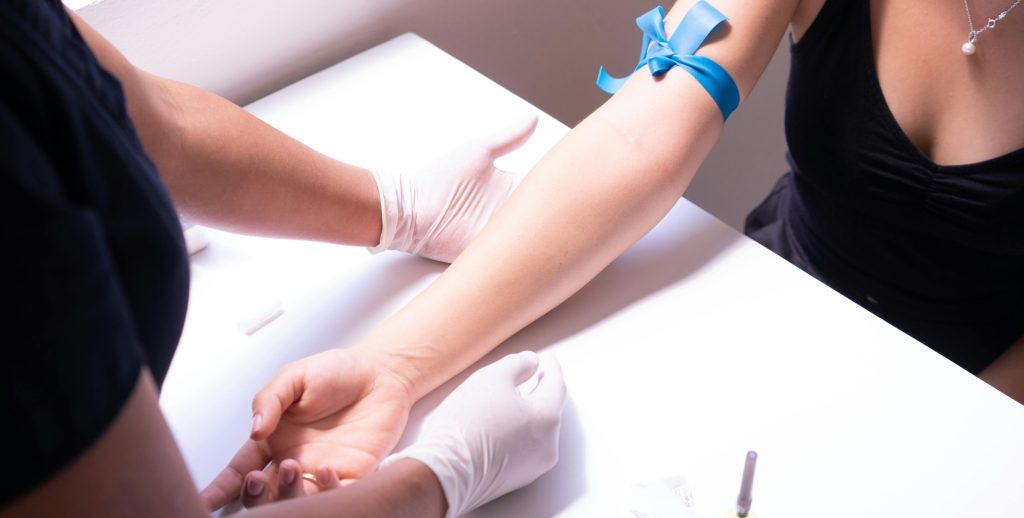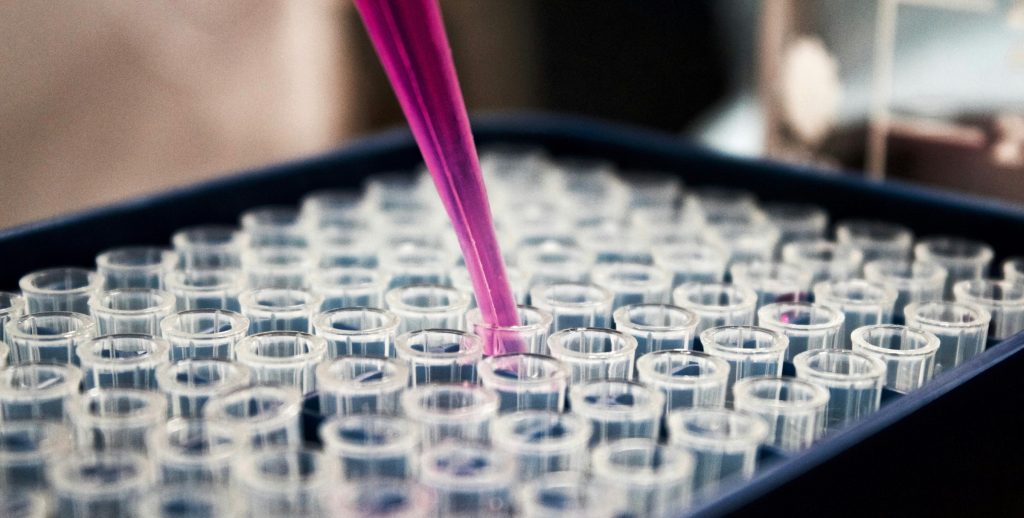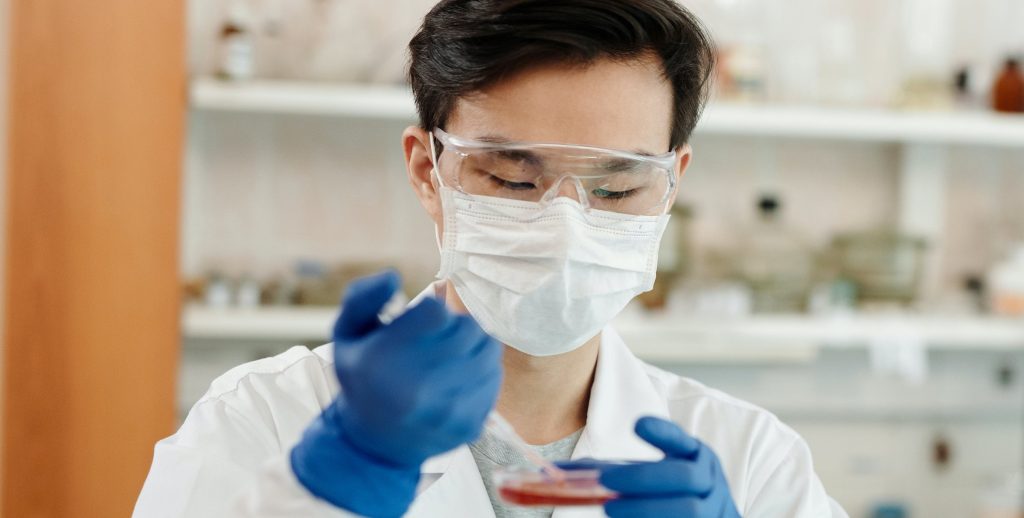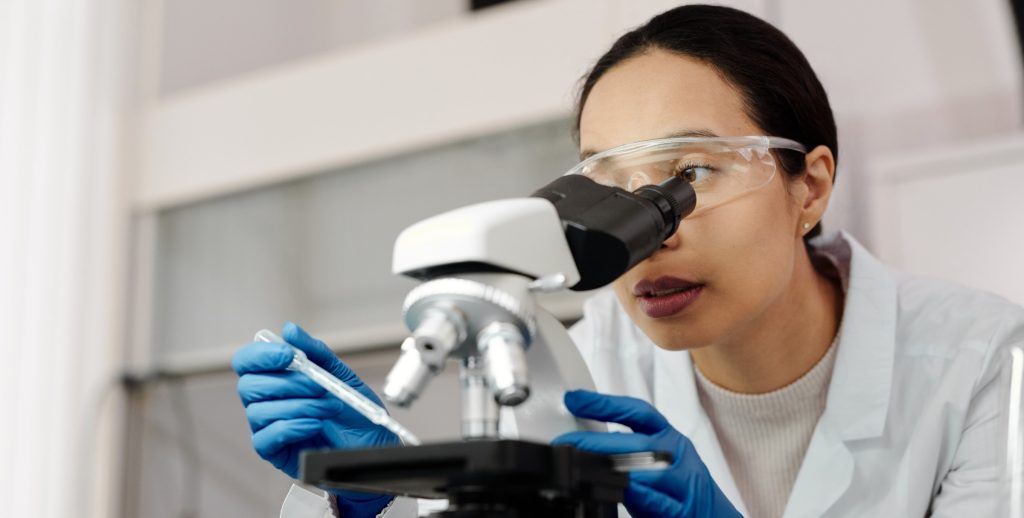How soon can HIV be detected by a blood test?
When the thought of having a sexually transmitted infection (STI) enters your mind, you want answers, and fast. Having knowledge of your sexual health status can help you make the best possible decisions for your sexual health.
This blog will give you all the answers you will need about HIV testing and how long it will take.
Let’s dive in.

The best way to protect against HIV is to always practice safe sex and never inject drugs.
What is HIV?
If you found yourself on this blog, you probably have an idea of what HIV is, but you may not know the details.
For a comprehensive look at what an HIV infection is, visit our dedicated infection page.
However, in a nutshell, HIV (the Human Immunodeficiency Virus) is a virus that can transmit from person to person through sexual activity, including vaginal sex, anal sex, or oral sex (but getting HIV from oral sex is very rare).
HIV can also be transmitted through blood-to-blood contact, such as sharing needles for intravenous drug use or contaminated blood transfusions.
HIV is the main cause of acquired immunodeficiency syndrome (AIDS).
HIV 1 vs HIV 2
Under the umbrella of HIV, there are two strains that you need to know about.
- HIV-1 is the most common type of HIV and accounts for 95% of all infections around the world. HIV-1 is more infectious and progresses faster than HIV-2. It is sensitive to most antiretroviral drugs used to treat HIV.
- HIV-2, on the other hand, is less common and less infectious. It is mainly present in West Africa but it is slowly starting to appear in other regions. HIV-2 develops more slowly and is less fatal than HIV-1. One important distinction is that HIV-2 is resistant to some medications that can treat HIV-1.

Get tested for HIV 1 and HIV 2 at a sexual health clinic near you.
How does an HIV blood test work?
For HIV tests, a blood sample is taken and analysed to detect the presence of the virus.
The virus can be detected in two ways: by detecting the antibodies produced by your immune system to fight the virus and by detecting the virus itself.
- HIV antibody test: Antibodies are produced by your immune system when your body gets an infection. HIV antibody tests don’t work as soon as you’re infected because it usually takes several weeks for your body to generate HIV antibodies to fight the virus. Many HIV Antibody tests today include a test for the p24 Antigen, an early marker of HIV infection, significantly reducing the waiting time for this test
- HIV PCR test: PCR tests, also known as Nucleic Acid Tests, look for genetic RNA material from the virus. These tests can be used for early detection of HIV and to monitor the progression of the infection in people who have been diagnosed with the infection.
How long does it take to detect HIV on a blood test?
The time it takes to detect HIV on a blood test depends on the type of test.
- HIV antibody plus Antigen tests must be taken at least four weeks (28 days) after the initial infection. Allowing 28 days to pass will allow the virus to reach levels in your body so that your immune system begins to produce the necessary antibodies. These antibodies can then be detected in the test. Even if your immune system has not started making antibodies, the p24 Antigen, made by the HIV virus itself, will be detectable within this timeframe.
- A PCR test, on the other hand, only requires that you wait 10 days for the virus to be detected.
Once these incubation periods have passed and you have provided a sample for your test, a laboratory will need to process it. At Better2Know, most HIV test samples are analysed within 1 business day of the laboratory receiving them.
So, how long it takes to get your results depends on when you get tested, the type of test you get, and the time it takes for the laboratory to process your results.

Get your test results no more than 5 business days after our laboratory receives your test samples.
What tests can I get that will detect HIV?
If you want to get tested for HIV with Better2Know, here are a few options for HIV testing.
28-Day HIV DUO Test
This DUO test combines an antibody test for HIV 1 and 2, and also includes a test for the p24 antigen.
Who should get this test: This test is suitable for anyone who is concerned about their sexual health and who wishes to keep themselves and their partners healthy.
10-Day HIV RNA PCR Test
This HIV test can detect the virus at just 10 days after any potential exposure. It tests for the presence of the viral genetic material of HIV 1 in your blood sample.
Who should get this test: This test is suitable for people who want the earliest possible results for HIV. This test is also very useful in case of needle stick injuries and for anyone who needs the earliest HIV test result possible.
Screens
While some people will only want to get tested for HIV, many people want to get an HIV test as part of a larger screen.
If this is you, here are some options:
- Early Detection Screen: Our Early Detection Screen is the earliest accredited test for HIV, Hepatitis B and Hepatitis C available in the Middle East. This is a highly accurate test, and is appropriate just ten days after any potential exposure. This screen tests for HIV, Hepatitis B, and Hepatitis C. (Contains the 10-Day HIV RNA PCR Test)
- Platinum Screen: The Platinum Screen tests for HIV 1 and 2 (with p24 antigen), Chlamydia, Gonorrhoea, Syphilis, Hepatitis B, Hepatitis C, Ureaplasma, Mycoplasma, Trichomonas, and Herpes 1 and 2. (Contains the 28-Day HIV DUO Test)
- Early Platinum Screen: The Early Platinum Screen includes testing for the same array of infections as the Platinum Screen, but with half the incubation period. This screen tests for HIV, Chlamydia, Gonorrhoea, Syphilis, Hepatitis B, Hepatitis C, Ureaplasma, Mycoplasma, Trichomonas, and Herpes 1 and 2. (Contains the 10-Day HIV RNA PCR Test)
- Full Screen: The Full Screen tests for HIV 1 and 2 and the p24 antigen, Chlamydia, Gonorrhoea, Hepatitis B, Syphilis, Mycoplasma, and Ureaplasma. (Contains the 28-Day HIV DUO Test)
Final thoughts
The idea of having HIV can be very worrying, but the best thing you can do for your health and well-being is to get tested and treated if you suspect you may have been exposed to it.
If you need help choosing a testing method, call the number at the top of this page to speak to one of our trained Sexual Health Advisors, or start your booking by clicking the button below.

Book a sexual health test at a clinic near you.
Categories
- Abu Dhabi
- Bacterial Vaginosis
- Bahrain
- Blood Tests
- Cancer
- Cervical Cancer
- Chlamydia
- Dubai
- Fertility
- Gardnerella
- Genital Warts
- Gonorrhoea
- Hepatitis A
- Hepatitis B
- Hepatitis C
- Herpes
- HIV (AIDS)
- HIV Testing
- HPV
- Instant Testing
- Kuwait
- Locations
- Middle East
- Mycoplasma
- Oman
- PAP Smear
- Positive STI Results
- Qatar
- Saudi Arabia
- Sex Education
- Sexual Health
- Sexual Health News
- Sexually Transmitted Infections
- STD Symptoms
- STD Tests and Screens
- STI Results
- STI Treatment
- STIs
- Sustainability
- Swab Tests
- Syphilis
- Trichomoniasis
- Uncategorized
- United Arab Emirates
- Ureaplasma
- Urine Tests




